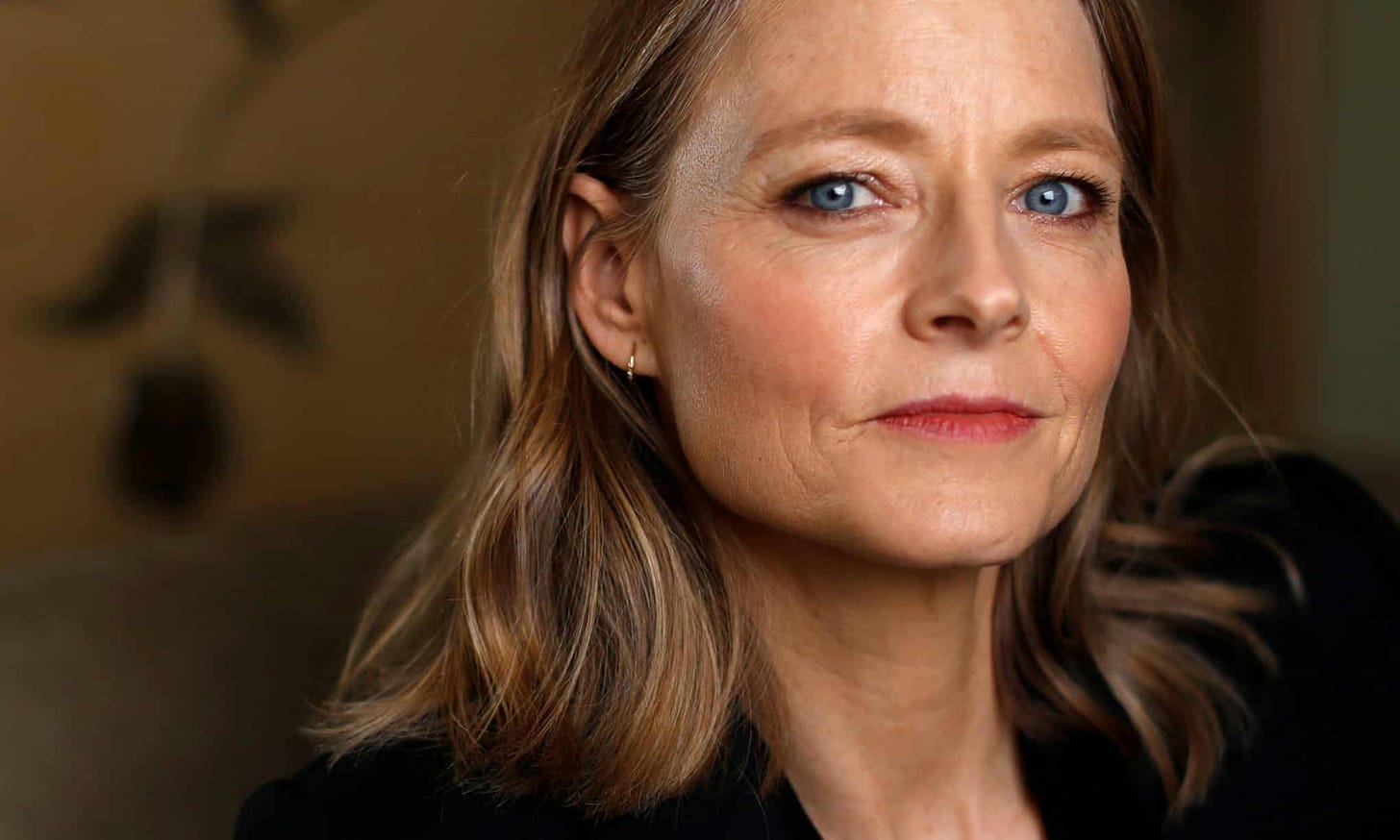Jodie Foster's Big, Beautiful Idea
The Oscar-winning actor and director has a litmus test for all projects she considers - words all storytellers should try to live by
My friend Meg LeFauve, the Oscar-nominated screenwriter behind INSIDE OUT and more, is also the co-host of the excellent podcast THE SCREENWRITING LIFE. Recently, she and her co-host Lorien McKenna chatted with Meg’s former employer, mentor, and friend Jodie Foster. Hopefully, I don’t have to explain to you who Foster is.
During their conversation, which I recommend you listen to here, Meg asked Foster about a philosophy the actress and director applies to any project she considers pursuing, but especially those she might direct. This philosophy can be distilled into one single question:
What is the big, beautiful idea?
Foster then goes on to explain what this means to her. I think her response is applicable to any art form, though maybe most easily to any of the more traditionally narrative art forms such as fiction or film/TV. I’m not one to pronounce much axiomatic in the world of storytelling, since most “rules” can be successfully broken, but everything Foster says here comes pretty damn close to being words to live by as an artist. If you can’t answer her question about your own work, you should probably go back to the drawing board, as they say.
Read Foster’s response below…
What is the big, beautiful idea?
How do you find the personal connection between the piece of art that you're trying to make and you and the lived life? When you find that, you will be moved. And when you are moved, you will make something that has the possibility — I'm not saying it's great — but it has the possibility of greatness because it's true.
As I always say, I only ask myself one question over and over and over again, whether it's as an actor or as a director: is it true?
You know, is it true that he would wear that blue hat? Is it true that he would walk in that door and turn on the light? Or would he not turn on the light?
If you just keep asking yourself that question — is it true or is it not true? — then you will find yourself making a personal movie that has a connection to a big idea, an idea that in some ways is larger than you because it lives inside you and you don't 100% understand it.
I guess that's what I'm always looking for, certainly as a director and even as an actor, in order to work on screenplays and, you know, come up with ideas for the character is trying to make that personal connection and saying, “Is there one overarching idea that, every time that I think about it, it stops my breath?”
What is that in the show? Because we are here to serve that. That's what the movie is here to serve. Whether it's the language of props or the language of production design, the language of acting - all of us are here to serve one big, beautiful idea and we bring our various languages together in order to achieve that.
Be sure to check out THE SCREENWRITING LIFE.
My debut novel PSALMS FOR THE END OF THE WORLD is out now from Headline Books, Hachette Australia, and more. You can order it here wherever you are in the world:





